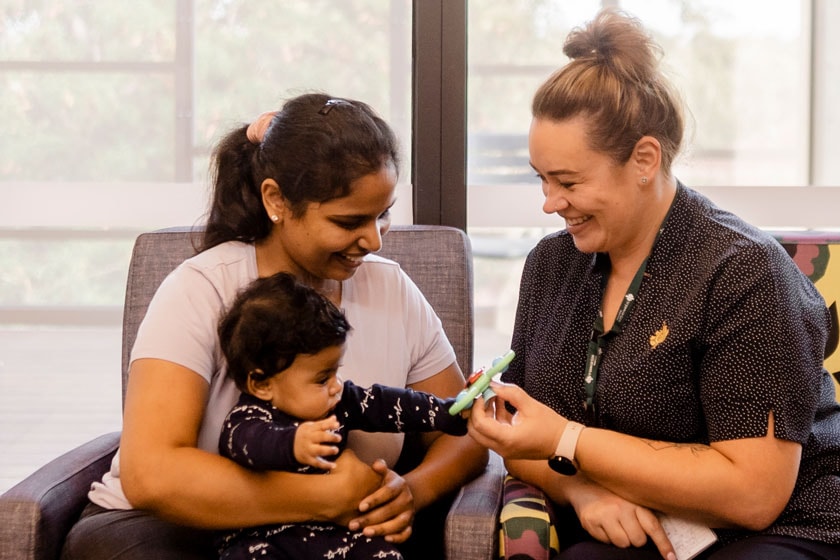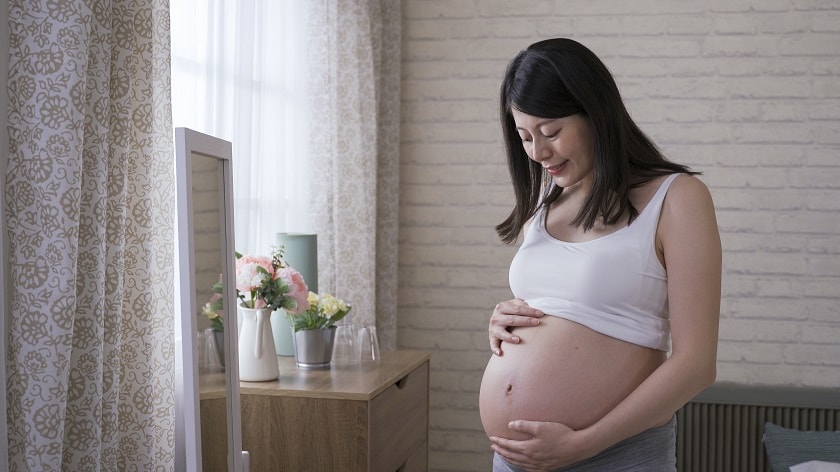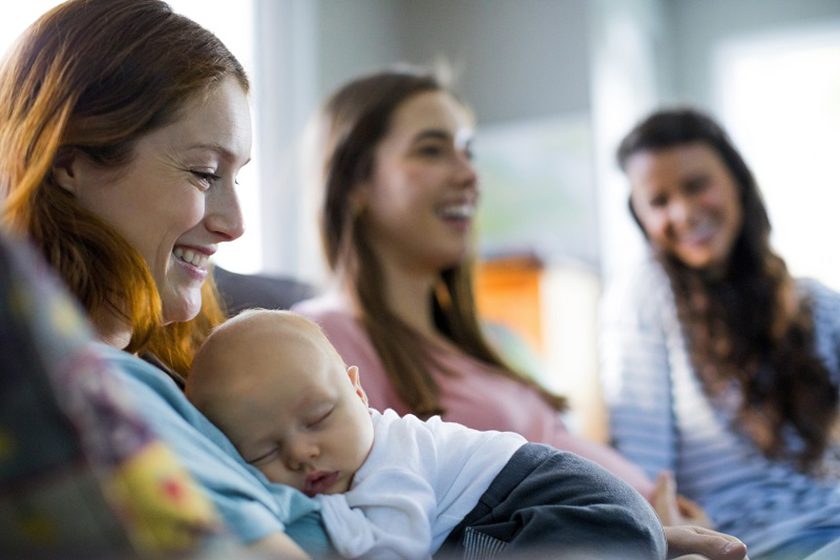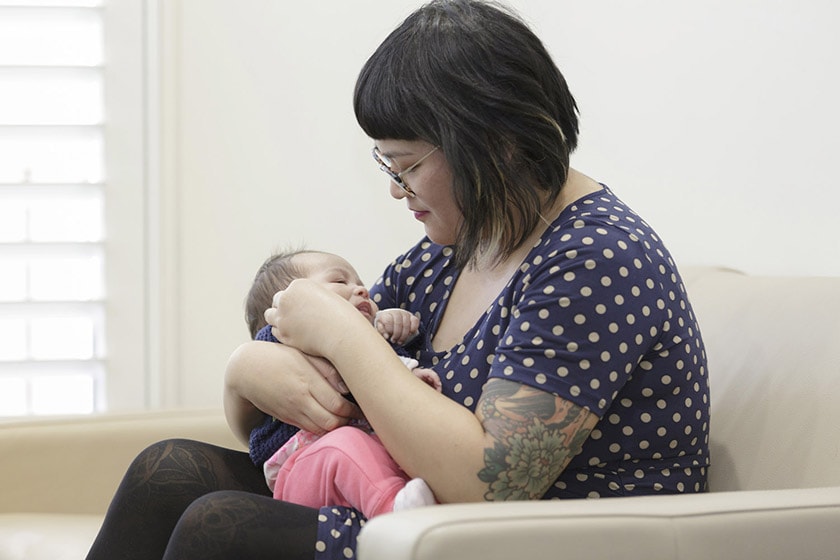The stark reality is – even with the best planned pregnancy, subsequent birth and aftermath - becoming a parent is rarely smooth sailing. From the outset getting pregnant easily is not a luxury bestowed to us all. And once pregnant we don’t always have the ability to stay that way despite our best intentions.
Even when we pass the coveted 12 week milestone that supposedly provides us with the reassurance that we will indeed be bringing a baby home within the nine month gestation period, things don’t always go to plan. Even when they do, we’re still left with fear of the unknown.
The pathway to parenthood is quite simply full of ups and downs and with a variety of curve balls thrown at us to navigate along the way …
Let’s face it, the process of getting pregnant and having a baby can be hard.
So why it is that once our babies are here we are expected to revel in this joyous experience? Why do we ignore the fact that while babies bring us closer to unconditional love and happiness, they also come with stress, exhaustion, physical pain, anxiety and feelings of overwhelm and teariness?
Throw some raging postpartum hormones into the mix and its little wonder why our emotions are all over the place. The stress of conceiving/growing/birthing a baby is now replaced by the stress of raising one ─ and the uncertainty that existed in the lead up to bringing a happy, healthy baby into this world subsequently gets an officially recognised title …
The Baby Blues
A term most of us are aware of, the ‘baby blues’ affect up to 80 per cent of all new mothers and is usually experienced three to five days after the birth of a baby. Mood swings, irritability, feelings of anger, sadness or overwhelm are common among parents following the arrival of their baby, and by no means do they indicate that you’re a bad parent or don’t love your child.
“Fortunately, the ‘baby blues’ only last a few days or weeks,” explains St John of God Langmore Centre Nurse Unit Manager Louise Gawler. “for many parents experiencing fluctuations in emotions, fr example being happy one minute and tearful or overwhelmed the next, symptoms ease on their own with time and support.
Louise continues, “Swinging from one emotion to another is generally believed to be caused by hormonal changes that occur in a woman’s body following birth. Oestrogen and progesterone levels that are needed during pregnancy suddenly drop causing variations in mood,” says Louise. “Being tired and not getting enough sleep in the early days/weeks only exacerbates these feelings.”
When the baby blues are more than the baby blues
While many new parents experience the ‘baby blues’, about 10-20 per cent of women suffer a more severe impact to their mental health. When feelings of sadness and/or anxiety exceed the one to two week period following birth or tend to become worse instead of better, new parents may be experiencing postpartum depression or anxiety.
How to know if you have the baby blues
- Your mood swings quickly from happy to sad. One minute, you’re proud of the job that you’re doing. The next, you’re crying because you think you’re not up to the task.
- You don’t feel like eating or taking care of yourself because you’re exhausted.
- You feel irritable, overwhelmed or anxious.
What to do next
- Sleep as much as you can when you can, try to rest when your baby is napping.
- Eat foods that are good for you. You’ll feel better with healthy fuel in your system.
- Go for a walk. Exercise, fresh air, and sunshine can do wonders.
- Accept help when people offer it.
- Relax. Don’t worry about chores. Just focus on you and your baby.
Knowing when it’s postnatal depression
Having a baby is hard work and feeling a bit low or overwhelmed after having a baby is often to be expected. This makes it extremely hard for parents to know if they are actually developing/experiencing symptoms of anxiety or depression.
Therefore it’s important to know that the baby blues do not typically last more than two weeks after having a baby. Postnatal depression however isn’t something that easily comes and goes throughout the day like the baby blues might. The symptoms are more persistent, won’t go away on their own and occur anytime during the first year after birth.
Common symptoms and signs of depression during and following pregnancy include:
- Feeling low in mood consistently for most of the day and for most days of the week
- Feeling irritable, angry or anxious a lot of the time
- Increased crying, sometimes for no apparent reason
- Reduced interest in things that you would normally enjoy
- Not able to sleep (even when your baby is sleeping) or sleeping more than usual
- Reduced appetite or over-eating
- Excessive fatigue and tiredness
- Difficulty concentrating and being forgetful
- Preoccupation with morbid thoughts or being anxious about multiple things, such as bad things happening to you, your pregnancy, your baby or your partner
- Feeling disconnected from your baby, that your baby is not really yours or that you do not have a bond with your baby
- Excessive feelings of guilt and/or failure, that you are a ‘bad mother’
- Thoughts of harming yourself
- Thoughts that things would be better for you and your baby if you (and/or your baby) were ‘not here’, leading to thoughts of suicide.
What to do next
Depression/anxiety can have serious consequences for both you and your baby. Early detection and treatment is vital. The first step is to see your GP who may initially order some blood tests to rule out any other causes for your symptoms such as iron deficiency, anaemia or thyroid problems.
If your symptoms are determined to be postnatal depression or anxiety there are lots of support options available to treat your condition effectively.
St John of God Langmore Centre has a Parent and Infant Unit (often referred to as a mother-baby unit) which provides tailored support to parents struggling with the challenges of parenthood. You can talk to your GP about getting a referral to our inpatient or outpatient programs or contact our centre on (03) 9773 7071 for more information.








